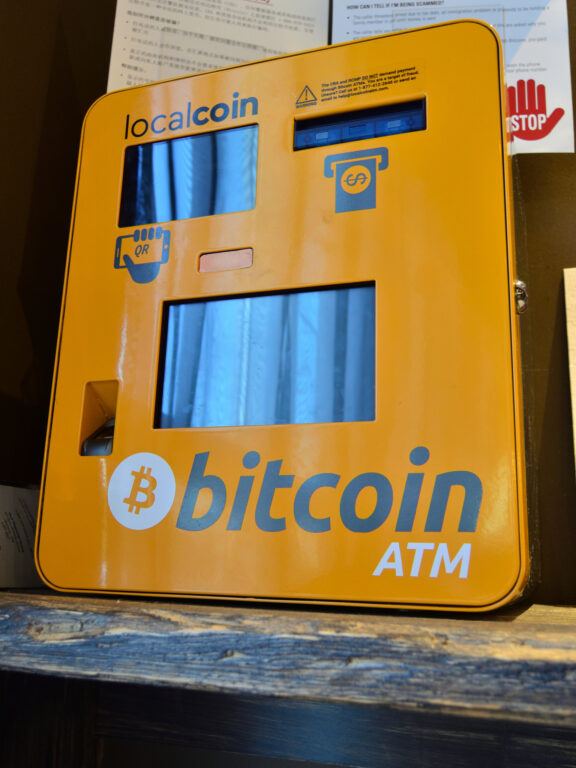Authorities in India have recently taken down the country’s first Bitcoin ATM (BTM), which was set up by local cryptocurrency exchange Unocoin last week in the Kempfort Mall. The police reportedly took it down as Unocoin reportedly didn’t have permission to install the ATM.
According to the Times of India, the cryptocurrency ATM wasn’t yet working properly as operational upgrades were being installed. The machine was set to be used by Unocoin’s customers to buy and sell cryptocurrencies, which could then be used via its website and app.
The police’s cybercrime department said in a statement:
The ATM kiosk installed by Unocoin in Bengaluru’s Kemp Fort Mall has not taken any permission from the state government and is dealing in cryptocurrency outside the remit of the law
Moreover, about Rs 1.8 lakh (roughly $2,500), three credit cards, five debit cards, a passport, two laptops, a “cryptocurrency device,” and seals Unocoin branded were seized. India’s authorities didn’t just take the equipment, but also arrested Unocoin’s co-founder, Harish BV.
Sathvik Vishwanath, the cryptocurrency exchange’s co-founder and CEO, has stated it was planning on setting up about 30 more cryptocurrency ATMs in India. Unocoin’s latest tweet, however, seemingly revealed things weren’t going as planned.
Our Machine didn't go well with few mainstream media reports who projected it under a negative light. The machine is still under final testing mode and it will be up and running in the upcoming week. The machine has been temporarily moved from its original place of installation.
— Unocoin (@Unocoin) October 20, 2018
As CryptoGlobe covered, Unocoin was using BTMs o circumvent regulations imposed by the Reserve Bank of India (RBI), the country’s central bank. The RBI, earlier this year, imposed a banking embargo on crypto-related businesses, as it stopped financial institutions from dealing with them.
While Unocoin argued its ATMs have nothing to do with the banking system, it has admitted through a blog post that the RBI’s norms also stop non-banking entities – like cryptocurrency exchanges – from operating their own ATMs.
The central bank’s ban notably saw popular Indian exchange Zebpay shut down, as it was no longer able to “find a reasonable way to conduct the cryptocurrency exchange business.” Most of its users flocked to BitBns, an exchange that has been accused of inflating its trading volumes.
The RBI has made it clear cryptocurrencies aren’t legal tender in the country. According to Quartz, the CEO of another cryptocurrency exchange revealed his business also “tried to explore the ATM idea,” but was “unsure about the legal aspect and were sure it will run into trouble with the authorities.”
The ATM’s take down comes as the cryptocurrency scene is struggling to survive in India. Available data suggests trading volumes have plummeted to one-tenth from their peak a year ago, in late 2017.








